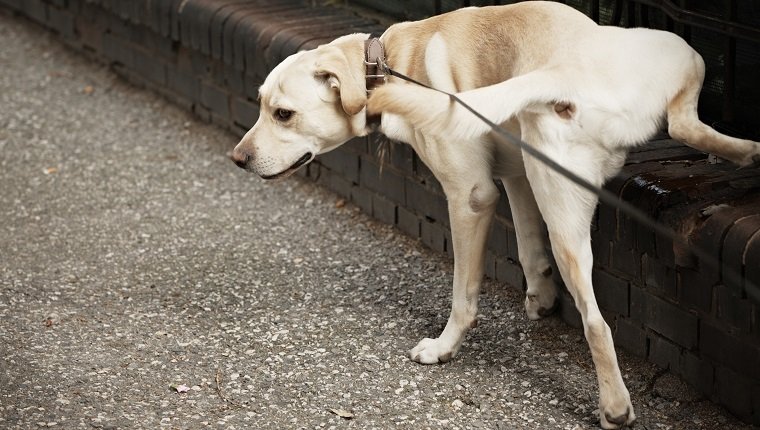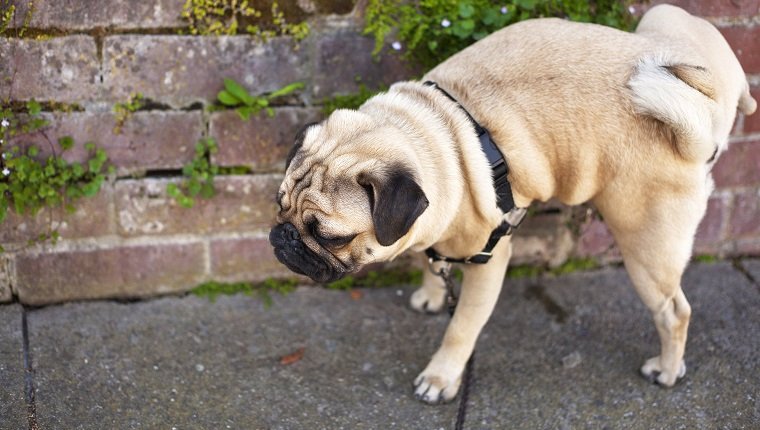Dysuria is a condition in dogs where urination is difficult and painful. Dogs may strain when trying to urinate, show signs of discomfort, or frequently attempt and fail to urinate. This can be caused by many conditions that affect the urinary tract, including urinary tract infections, bladder stones, or tumors.
If you see signs that your dog is having difficulty urinating or showing signs of pain during urination, you should consult your veterinarian immediately because it can be a sign of serious health problems. Your vet will find the cause, form a diagnosis, and prescribe appropriate treatment.
Here’s what you should know about the symptoms, causes, and treatments for dysuria in dogs.
Symptoms Of Dysuria In Dogs

The symptoms of dysuria in dogs include signs of pain while urinating. If your dog seems to be uncomfortable or acts unusually when it’s time to urinate, consult your vet right away.
Here are some possible signs of dysuria that you should watch out for:
- Frequent attempts to urinate without producing urine
- Straining to urinate
- Dribbling only small amounts during urination
- Accidents in the house from dogs who are otherwise housetrained
- Irritability
- Swelling or pain in the lower abdomen
- Licking at the genitals
- Blood or mucus in urine
- Signs of pain, such as vocalizations, while urinating
Causes Of Dysuria In Dogs

There are many possible causes of dysuria in dogs. Several conditions can affect the lower urinary tract, including the bladder and urethra, causing pain and difficulty while urinating.
Here are a few possible conditions that may lead to dysuria in dogs:
- Urinary tract infection
- Bladder stones
- Stone in the urethra
- Tumors in the urinary tract
- Inflammation of the urethra
- Neurological conditions that affect the urinary tract
- Anatomic abnormalities, such as a narrowed urethra
- Malfunction of the bladder muscles
- Exposure to drugs or chemicals
- Cysts
- Abscess
Treatments For Dysuria In Dogs

Treatment for dysuria in dogs depends on the cause of the condition. For example, in the case of a urinary tract infection, a vet may prescribe antibiotics or other medications. Anti-inflammatory drugs may reduce inflammation in the urethra.
If the cause of the dysuria is less serious, dogs may not need hospitalization and will likely recover so long as pet parents give them medication as prescribed for the amount of time recommended by their vets, along with plenty of access to fresh water.
If the condition is more serious, then dogs may need hospitalization or surgical procedures to address the issue. In some cases, special diets can dissolve stones, or surgery can remove them. Surgery can additionally treat cysts or tumors.
However, only your vet will be able to advise you on the proper treatment if your dog suffers from dysuria. As your dog recovers, make sure they drink plenty of water and pay attention to their urination, including how much urine they produce, how frequently they urinate, and whether they show any signs of pain.
Tell your vet if symptoms are worsening or not improving so they can adjust treatment accordingly.
Has your dog ever suffered from dysuria? What was the cause? Let us know in the comments below!





